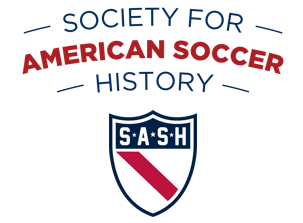The U.S. Soccer Federation president who led the campaign that resulted in the United States being named to host the 1994 World Cup.
Fricker had a number of significant accomplishments during his time as head of the USSF, from 1984 to 1990, but the successful World Cup bid was the most important. FIFA awarded the 1994 World Cup to the United States on July 4, 1988.
Ironically, that victory may have sown the seeds of Fricker’s eventual defeat as USSF president. When it awarded the World Cup to the United States, FIFA apparently thought it was getting the sort of high-powered management that had made a spectacular success of the 1984 Olympic Games in Los Angeles. Fricker was a very successful small businessman, but FIFA decided within a few years that running the World Cup required a higher level of international business and legal acumen. At the 1990 USSF annual general meeting, Fricker was defeated for re-election by the FIFA-backed Alan Rothenberg.
Fricker’s other major accomplishment as USSF president was to start the federation on the road to modernizing its business operations, including the moves that turned around a difficult financial situation. Fricker, a Philadelphia real-estate developer with a strong background in ethnic soccer, served as something of a bridge between the USSF’s volunteer managment of prior decades and the professional style of later years.
It also was on Fricker’s watch, in 1989, that the United States qualified for the World Cup for the first time in 40 years.
Fricker, who was born in Yugoslavia and came to the United States in 1952, was an outstanding amateur player for the United German-Hungarians of Oakford, Pa., from 1954 to 1969. He was a member of the United States team in the qualifying round of the 1964 Olympic Games, and was captain of the United German-Hungarians team that won the National Amateur Cup in 1965.
Inducted in 1992.
